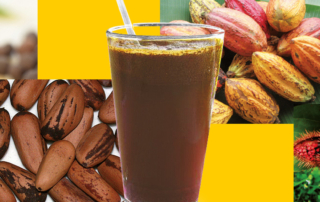Taller Leñateros a combination of fiber, color and textures
Right by San Cristobal de las Casas, you will find the Lenateros Workshop. At this magical place leaves and seeds are transformed in a great variety of items along with recycled materials and natural fibers.
The Mexican poet Ambar Past founded this workshop in 1975. The objective is to document, and spread the cultural values of the locals, the songs, literature, and crafts and to rescue things and traditions that are about to disappear like the extraction of color from plants.
The lenateros create, show, invent new things and work in different ways to make handcrafted paper, notebooks, solar silkscreen, wood engraving and painting with plants. The organization is pro environment, recycle and to create work of art.
[…]

